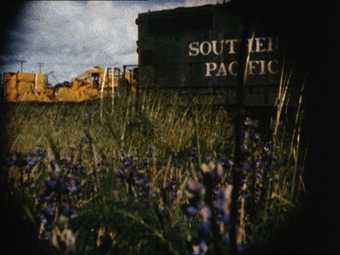Bruce Baillie’s lyrical and keenly observational 16mm films evade genre categories and explore narrative in non-traditional forms, fusing the mystical and the mundane, the cosmic and the personal, the mythological and the autobiographical. His work has inspired generations of artists and filmmakers, from George Lucas to Ben Rivers, Jennifer Reeves and Apichatpong Weerasethakul. Baillie has played a vital role in creating spaces and systems of support and distribution for experimental filmmakers, having co-founded the San Francisco Cinematheque as well as the filmmakers’ distribution co-operative Canyon Cinema together with Chick Strand, whose films were presented in the Tate Film retrospective Chick Strand: Soft Fiction last fall. This weekend-long programme pays homage to Baillie’s body of work and recognises his legacy as both a seminal artist and as a distributor and promoter of experimental filmmakers.
There were ages of faith, when men made natural connections between themselves and the place in which they lived, the plants they cultivated, the fuel they used for warmth, their beasts, and their ancestors. My work will be discovering in American life those natural and ancient contacts through the art of cinema!
Bruce Baillie
This Tate Film Pioneers retrospective forms part of the touring programme All My Life: The Films of Bruce Baillie organised and curated by Garbiñe Ortega.
About Bruce Baillie
Bruce Baillie (b. 1931, USA) is an experimental filmmaker known for his rich and poetic visual imagery and his socially-engaged approach to 16mm film. Baillie made his first films in 1961 (On Sundays, The Gymnasts, Mr. Hayashi), and in the same year co-founded both the San Francisco Cinematheque and Canyon Cinema together with other filmmakers in the Bay area. Though he is best known for the lyrical 16mm films he made through the 1960s, 70s and 80s, Baillie also worked with video beginning in the early 90s (The P-38 Pilot, Commute). Baillie was the recipient of of the AFI’s Maya Deren Independent Film and Video Artists Award in 1991 and the following year his film Castro Street (1966) was selected for preservation in the United States National Film Registry. In 2012, Stanford University acquired Baillie’s archives as well as the archives of Canyon Cinema. He is currently working on his final, three-part film entitled Memoirs of an Angel.
Tate Film is supported by LUMA Foundation.

